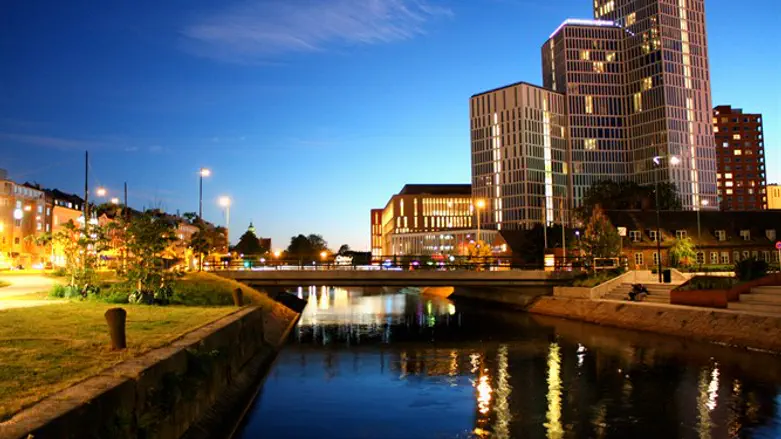
:Those who have been given refuge in Sweden have no right to threats and violence against anyone in our country. But this is where it becomes politically difficult. It becomes difficult in Swedish politically correct logic when one minority harasses another minority. It was easy when the criticism concerned the Nazis, it gets complicated when the anti-Semitism of the left and the Middle East becomes evident ".
Sweden had been, in the XX century, one of the most welcoming places for Jews in Europe (the hero of the Holocaust Raoul Wallenberg also came from there) and Malmö was the city-refuge for the many who managed to escape Nazi deportation. Swedish writer Paulina Neuding spoke at a conference of the Office of the United Nations High Commissioner for Refugees: “I live in Mälmo. It was once a safe haven for Jews, but today only 200 remain and they are harassed ”.
When she first arrived in Sweden after her rescue from a Nazi concentration camp, Judith Popinski rebuilt her life in Malmö and for the next sixty years she lived happily in her adopted homeland. In 2009, a chapel in his Jewish community of 700 was set on fire. "I never thought I'd see this hatred again in my life, not in Sweden," Ms. Popinski told the Telegraph. "This new hatred comes from Muslim immigrants, the Jewish people are now afraid".
The building at Kamrergatan 11 in Malmö is now a fortress. The facade is covered with metal plates. The windows are as small as slits, the cameras point to the entrance. Pressing the button activates the intercom: "Welcome to the Jewish community of Malmö". Roadblocks have been erected around the congregation and the synagogue. The aim is to prevent vehicles from getting too close. The nursery school is apparently perfectly normal. But children play behind bulletproof glass, and their exits require safety protocols.
Malmö's Orthodox Synagogue, the oldest in Scandinavia, has become a bunker. Jews in the country's third largest city have been scared for years. Suddenly, twenty years ago, they heard yahoud, Hebrew in Arabic.

With 176 nationalities, Malmö is the fourth most multi-ethnic city in the world after London, New York and Washington. But there seems to be no room for a small minority: the Jews. One third of Malmö's inhabitants are of foreign origin and the percentage is constantly increasing. In the 1970s, the Jewish community had over two thousand members: today there are fewer than four hundred left.
Before the attack in Copenhagen in 2015, there were 23 children at the Jewish nursery in Malmö: today there are five. Some say that the synagogue in the city will soon be transformed into a museum, given that since 2010 a today it has lost a third of the faithful. Malmö's Jewish community could therefore dissolve by 2029, unless circumstances change. It counted 2,500 Jews in the 1970s, 842 in 1999, 610 in 2009, 387 in 2019, 200 today ... In ten years there will be no more Jews. "The Jewish congregation will soon disappear," reads a community note.
The Wall Street Journal summed it up like this: “Eurabia is in Sweden”. Multiculturalism turned out to be the end of tolerance and coexistence.
Giulio Meotti is, an Italian journalist with Il Foglio, writes a twice-weekly column for Arutz Sheva. He is the author, in English, of the book "A New Shoah", that researched the personal stories of Israel's terror victims, published by Encounter and of "J'Accuse: the Vatican Against Israel" published by Mantua Books, in addition to books in Italian. His writing has appeared in publications, such as the Wall Street Journal, Gatestone, Frontpage and Commentary.